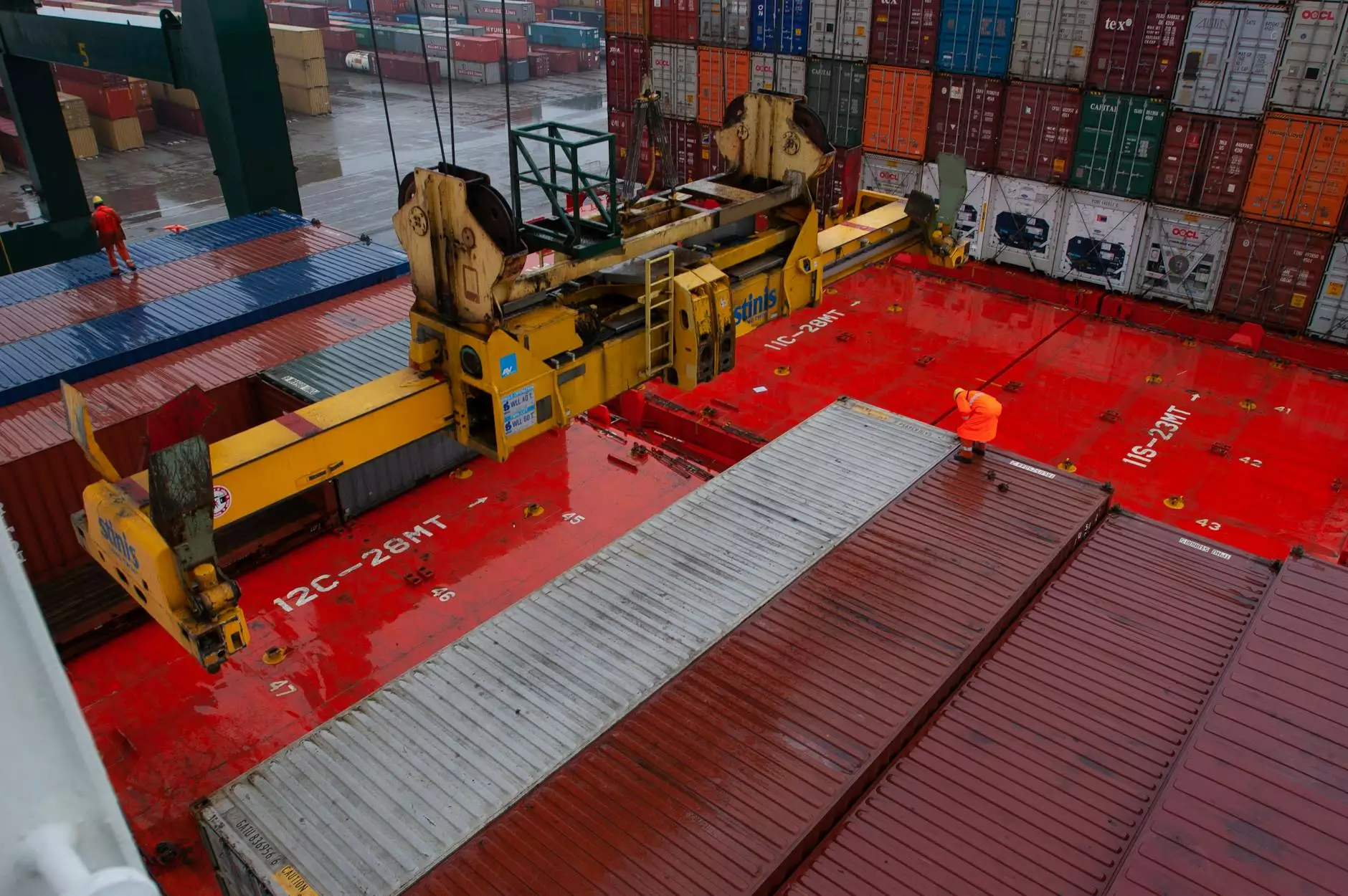Understanding Air Freight Charges: A Comprehensive Guide

Introduction to Air Freight
Air freight is an essential component of global trade, providing businesses with a fast and efficient means to transport goods across vast distances. The term air freight charge refers to the fees incurred for transporting cargo by air. As globalization continues to foster increased demand for rapid shipping solutions, understanding the intricacies of air freight charges has never been more vital for businesses of all sizes.
The Importance of Air Freight in Modern Commerce
The significance of air freight cannot be overstated. It allows companies to:
- Reduce Transit Time: Air freight drastically cuts down delivery times compared to ocean freight, which is crucial for time-sensitive shipments.
- Enhance Supply Chain Efficiency: Quick delivery enables businesses to maintain lower inventory levels, improving cash flow and minimizing storage costs.
- Expand Reach: Air freight opens up markets that were previously inaccessible due to transportation constraints.
Factors Influencing Air Freight Charges
Several elements come into play when determining air freight charges. Understanding these can help businesses better plan their logistics and manage costs effectively.
1. Weight and Dimensions of the Shipment
One of the most significant factors affecting freight charges is the weight and size of the shipment. Air freight companies operate on a dimensional weight pricing model where charges are based not just on actual weight but also on the cubic space that the cargo occupies. If the dimensional weight exceeds the actual weight, the chargeable weight becomes the dimensional weight.
2. Type of Cargo
The nature of the goods being transported also plays a critical role. For instance, hazardous materials often incur higher fees due to the additional handling and regulatory requirements. Conversely, non-perishable goods typically attract lower charges.
3. Distance and Destination
The air freight charge varies significantly based on the origin and destination of the shipment. Longer distances generally lead to higher costs, though some regions may have competitive rates due to established trade routes.
4. Fuel Costs
Just like any other transport mode, fluctuations in fuel prices have a significant impact on air freight charges. Airlines often impose a fuel surcharge to mitigate these costs, which is reflected in the final shipping price.
5. Seasonal Demand
The demand for air freight services can vary dramatically throughout the year, particularly during peak seasons such as holidays or major sales events. During these periods, businesses can expect an increase in air freight charges due to heightened demand.
Benefits of Using Air Freight
While air freight charges may be higher than sea freight, the advantages of choosing air transport often outweigh the costs. Here are some compelling reasons to consider air freight:
- Speed: Ideal for urgent shipments, air freight generally ensures arrivals within a few days.
- Reliability: Airlines typically maintain strict schedules, reducing the risk of delays.
- Security: Air cargo handling processes are highly regulated, making it a safe way to transport goods.
Key Players in the Air Freight Industry
The air freight industry comprises various stakeholders, each playing a critical role in the overall transportation process:
- Airlines: Major carriers that operate flights for cargo transport.
- Freight Forwarders: Firms that manage the logistics of shipping, negotiating with airlines on behalf of their clients.
- Ground Handlers: Service providers that manage the loading and unloading of cargo at airports.
- Customs Brokers: Experts in regulatory compliance who facilitate the smooth passage of goods through borders.
Tips to Minimize Air Freight Charges
Businesses can take several strategic steps to minimize the financial burden of air freight charges:
- Negotiate Rates: Establish long-term relationships with freight forwarders to gain access to discounted rates.
- Optimize Packaging: Ensure that shipments are well packaged to reduce dimensions and total weight.
- Consolidate Shipments: Combine smaller orders into a single larger shipment to take advantage of economies of scale.
- Choose the Right Route: Utilizing alternative routes or airports may yield better rates, depending on demand and competition.
Future Trends in Air Freight Charges
As the logistics industry evolves, several trends are expected to influence air freight charges in the coming years:
1. Sustainability Initiatives
The push for sustainable logistics practices is gaining traction. Airlines will likely invest in more fuel-efficient aircraft and greener technologies, which could influence overall air freight costs and charges in a positive way over time.
2. Advanced Technology
The increased integration of technology, such as blockchain and IoT (Internet of Things), in supply chain management can enhance transparency and efficiency, potentially lowering costs associated with air freight logistics.
3. E-commerce Growth
With e-commerce driving up demand for faster delivery options, air freight services are expected to adapt by offering more competitive rates and tailored solutions for online businesses.
Conclusion
In conclusion, understanding the nuances of air freight charges is crucial for businesses looking to optimize their logistics and supply chains. By taking into account the various factors that influence pricing and applying strategic measures to manage costs, companies can leverage air freight services to their advantage. As the industry continues to evolve, staying informed about trends and developments will be essential for maintaining a competitive edge in the global marketplace.
Get Started with Your Air Freight Needs
Are you ready to take your shipping strategy to the next level? Partner with a trusted freight forwarder today and gain valuable insights into your air freight options, including competitive air freight charges tailored to your specific business needs.
air freight charge








